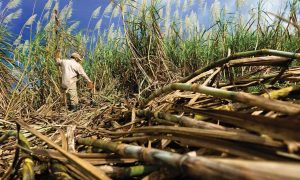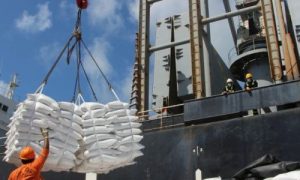Blow to South Africa agricultural exports as US imposes 30% tariff

Starting August 1, the US will impose a 30% tariff on South African exports, threatening $13.7 billion in trade. AgriSA warns of severe impacts on citrus, wine, nuts, and rural jobs. Industry leaders urge urgent diplomatic action and trade diversification. The South African government is negotiating to reverse the tariffs and protect its agriculture sector’s future.
From 1 August, the United States will impose a 30% tariff on all products exported from South Africa — a move that has sparked concern across the country’s agricultural sector. Industry leaders are calling for proactive and collaborative efforts to protect the sector’s viability and ensure its long-term sustainability.
Chief executive officer of AgriSA, Johann Kotze, said the development is a wake-up call for South Africa’s trade policy and agricultural sector. He said AgriSA remains committed to working alongside government bodies, industry partners, and international alliances to navigate these challenging trade waters.
“South Africa’s agriculture is heavily export-oriented, with exports worth US$13.7 billion in 2024. The primary commodities at risk include citrus, macadamia nuts, grapes, subtropical fruits, wine, fruit juices, ostrich leather, and other fresh produce. The sector’s dependence on the US market, where around 7 million cartons of citrus are exported annually, is vital for rural employment and economic stability.
“While calls for market diversification are valid, supply chains cannot be redirected overnight and will take time to materialise. This highlights the immediate severe impact on regions and producers who are heavily reliant on the US market,” he said.
Urgent interventions are needed
Kotze said South Africa’s wine industry faces potentially disastrous impacts under the 30% tariff, and the increase will eliminate profitability for many producers due to the high-cost increase across the supply chain.
“Urgent allocation of additional resources and alignment on a pragmatic trade strategy for agriculture are needed. South Africa’s participation in global trade markets is significantly impeded by its trade agreements, or lack thereof, with key economic regions such as the ASEAN countries.
“These agreements facilitate trade by reducing tariffs and fostering economic integration. However, South Africa faces significant competition from countries that have already established comprehensive trade agreements,” he said.
Meanwhile, agriculture minister John Steenhuisen said he would continue to work with his fellow ministers – including the minister of trade, industry and competition, minister of international relations and cooperation, and the minister of finance – to urgently engage the US and explore all avenues to secure a more favourable and fair trade outcome for South Africa.
Agricultural jobs at risk
“Thousands of jobs in the agricultural sector are impacted, and therefore, we remain committed to constructive dialogue with our USA counterparts. As part of the strategy, the department of agriculture is continuing engagements with trade partners and exploring other avenues in new and emerging markets,” he said.
The presidency stated that South Africa will continue with its diplomatic efforts towards a more balanced and mutually beneficial trade relationship with the United States.
“In our interpretation of the available trade data, the average tariff on imported goods entering South Africa stands at 7.6%. Importantly, 56% of goods enter South Africa at 0% most favoured nation tariff, with 77% of US goods entering the South African market under the 0% duty.
“We welcome the commitment by the US government that the 30% tariff is subject to modification at the back of the conclusion of our negotiations with the United States,” the presidency said.
To Read more about Agri News continue reading Agriinsite.com
Source : Food For Mzansi

















